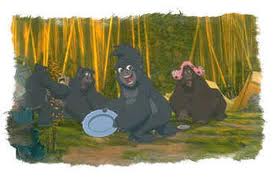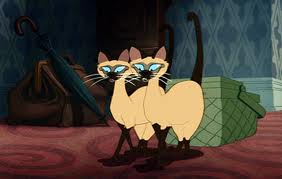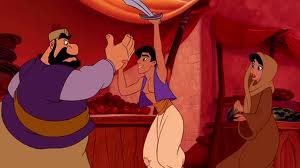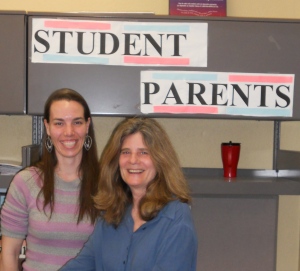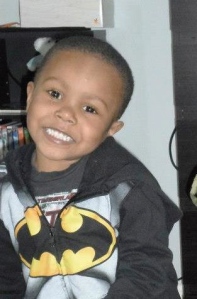5. Ursula, the antagonist in The Little Mermaid, is based on a stereotypical drag-queen. Designed to be a larger woman, with an unnaturally deep voice, and too much make up, her blood red nails and bright blue eye shadow help her play the role.
4. Disney’s heavy involvement in WWII propaganda led to the well-known faces of Mickey Mouse, Donald Duck, and Goofy being plastered on the sides of bomber planes, as well as bombs. To make matters more interesting, Disney also produced several military films for both soldiers and the American public to boost morale and portray anti-German and anti-Japanese sentiments. See “Der Fuehrer’s Face” or “Education for Death-The Making of a Nazi”
3. The classic film Beauty and the Beast conveys the message that one should not judge another by appearance, rather by one’s inner virtue, beauty, and goodness. However, after researching the affect of the message of Beauty and the Beast on young girls, researchers found the message may actually be “stick by your man; your love can change him from an abusive husband into a prince!”
2. Little Red Riding Hood, originally titled “The Grandmothers Tale”, first featured the line “a slut is she who eats the flesh of her grandmother.” If that wasn’t enough to alter your opinion of Little Red, let me tell you how she escaped the Big Bad Wolf in the original story. Trapped in her grandmother’s house with the Big Bad Wolf, Little Red asked if she could go outside to use the bathroom. The Wolf agreed, but only on the condition that she would allow him to tie a rope around her leg so she couldn’t escape. Little Red took so long outside that eventually the Big Bad Wolf called out, “Are you dropping a load out there?!” Hearing no reply he ran outside to see Little Red’s rope tied to a tree with her nowhere in sight. So what did Beauty and the Beast teach us Big Bad Wolf? Don’t judge a book by it’s cover, the cunning Little Red was able to escape but in a bit more of a graphic way than I remembered.
1. Disney may partake in some occasional racism, which they spread to millions of children around the globe.
Oliver and Company: Alonzo (a Latino Chihuahua) steals a car, and falls deeply in love with a female dog who tells him he’s the bottom of the barrel and not good enough for him.
Tarzan: The Disney version eliminates all of the black people in Africa from the film. Instead they portray a white man in Africa who is superior, and who swings from trees, and “[African children] see gorillas being the ones they relate to,” said Dr. Alvin Poussaint, the Director of the Media Center at Judge Baker Children’s Center.
“What does that mean to an African child, is it promoting white supremacy to African children,” he said, “of course it is.”
The Lion King: The hyenas are identified with inner city minority people, particularly blacks, so it sends a message to associate these people with evil characters.
Lady and the Tramp: The Siamese cats are depicted with “slanted eyes, the buck teeth and the very heavy accents,” said Chyng Feng Sun a children’s book author. The cats are shown as “cunning, sinister, and manipulative,” she stated.
Aladdin: The merchant attempts to cut off Princess Jasmine’s hand when she steals an apple to give to a hungry child. “ Dr. Jack Shaheen, a Professor of Mass Communications Emeritus at Southern Illinois University said, “this goes against Islam, in Islam you are obliged to feed someone if they are hungry, over and over again, and that’s what devout Muslims do.” He went on to say, “Only in Saudi Arabia, if you are a thief, a real thief, and after three warnings and three convictions if you steal something is the hand removed, in one country, with a population of a few million, and yet they opted to use this.”
And most clearly,
Pocahontas: In the song Savages, the viewer hears the white men sing out, “Savages, savages, barely even human…They’re not like you and me, which means they must be evil…different from us which means they can’t be trusted.”






